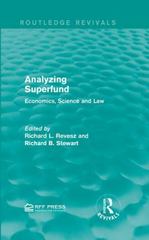Question
1. Which of the following utility functions satisfy (i) strict convexity. (ii) monotonicity: (a) U (x, y) = min [x, y]; (b) U (x, y)
1. Which of the following utility functions satisfy
(i) strict convexity.
(ii) monotonicity:
(a) U (x, y) = min [x, y];
(b) U (x, y) = xa y1-a;
(c) U (x, y) = x + y;
(d) Lexicographic preference.
(e) U (x, y) = y
2. Answer:
a. Drive the Slutsky equation using calculus.
b. Assume that your preference is characterized by U (x, y) = x+lny. Further, assume that I = 100 (income), Px = 1 (price of x), and Py = 1 (price of y).
Obtain the optimal consumption bundle. If I increase, what happens to your consumption?
3. Consider the following utility functions:
(i) U = min [x, y] and
(ii) Lexicographic preference.
Decompose the total price effect into substitution effect and income effect. Use both Hicksian and Slutsky decomposition. Identify substitution effect and income effect in your diagrams.
4.
a. Suppose that the government imposes sales tax (t dollars/per unit) on x. For whatever reason, this tax is returned to the consumers in the form of lump-sum payment. Note that the rebate is based on the final consumption of x after tax is imposed. Are you better or worse off after the rebate? Analyse by using a diagram.
b. To promote sales, Pizza Pizza introduces two programs, and you can choose either one to pay for your purchase.
Program 1: Whenever you buy a pizza of any size at the regular price, the second one can be obtained at a half price.
Program 2: You pay the regular price for the first one and then enjoy a 20% discount for each additional pizza thereafter.
For example, if the regular price for a large pizza with 3 toppings is $20, it costs you only $16 for the second one (i.e., 80% of $20), 12.8 dollars for the third one (i.e., 80% of $16), 10.24 dollars for the fourth one (i.e., 80% of 12.8), and so on. The limit is 10 pizzas per order. Draw the constraint function for each program. Are you better off under Program 1 or Program 2?
Discuss.
c. Assume that you consume x (gasoline) and y (other good). The price of x, px, is 75 cents per liter and the price of y, py, is 1 dollar per unit. If the oil crisis continues, it may reach a point such that rationing becomes necessary. When this occurs, the government decides to issue each liscenced driver coupons that allow them to buy 200 liters of gasoline per month at the current price (i.e., 75 cents per liter). For those who drive SUV or the likes and may therefore need more than 200 liters, the excess amount can be purchased at the market price, 1.50 dollar/liter say.
Draw the budget constraint function and discuss the solution.
d. If the demand for a product is perfectly elastic, what does the corresponding price-consumption curve (or price offer curve) look like?
Step by Step Solution
There are 3 Steps involved in it
Step: 1

Get Instant Access to Expert-Tailored Solutions
See step-by-step solutions with expert insights and AI powered tools for academic success
Step: 2

Step: 3

Ace Your Homework with AI
Get the answers you need in no time with our AI-driven, step-by-step assistance
Get Started


